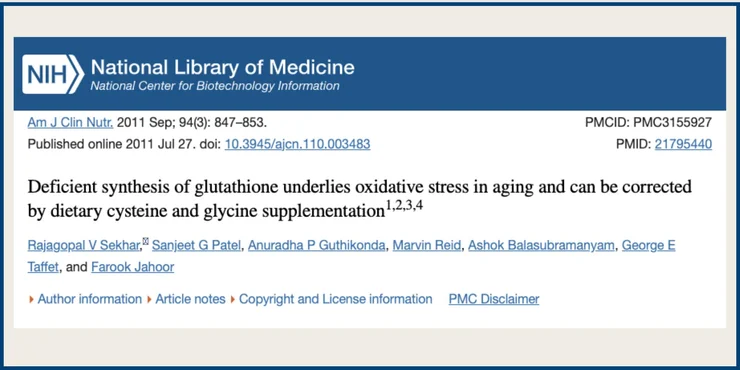Your body is home to a “master” antioxidant called glutathione (pronounced gluta-thigh-own).
More powerful than other popular antioxidants like astaxanthin (found in krill oil), quercetin, and even vitamin C, glutathione is pivotal for healthy aging (1).
Think about it…
Without antioxidants, your oxidative stress would be through the roof.
A quick refresher: Oxidative stress occurs when there’s an imbalance of free radicals and antioxidants in the body. Free radicals are those frustratingly unstable molecules that damage your cells. So when there’s an imbalance, it can eventually lead to cellular damage, faster aging, and the development of age-related diseases like arthritis, high blood pressure, and Alzheimer’s.
Knowing this, it’s essential that we get plenty of antioxidants each day through whole foods and quality supplements.
In this blog, you’ll learn how and why glutathione may contribute to a longer, healthier lifespan (aka your healthspan). And as a registered dietitian with an MS in Nutrition, I’ll also share how you can effectively boost your body’s natural production of this ‘master’ antioxidant. Ready? Let’s dive in…




